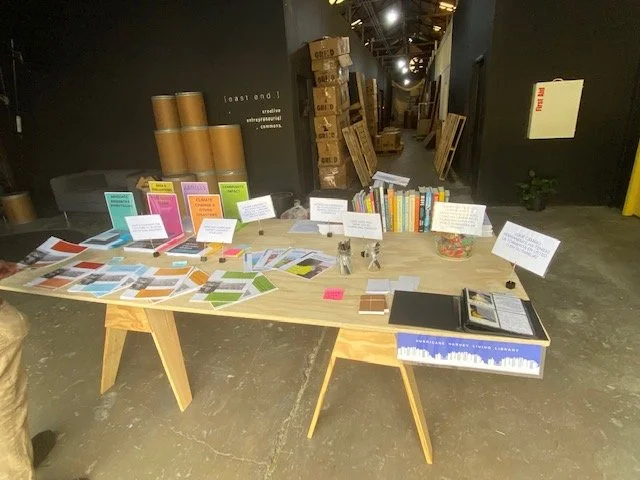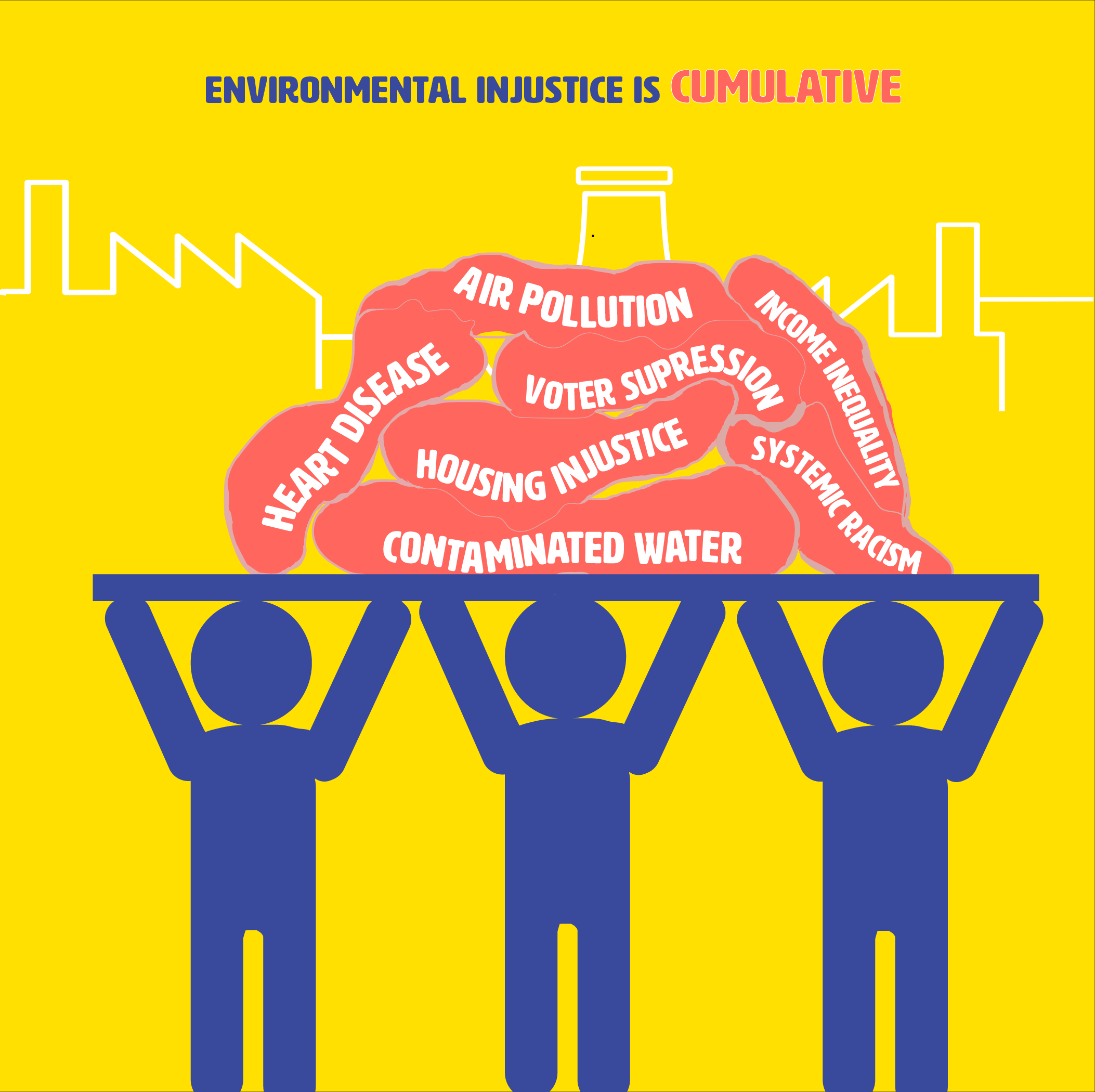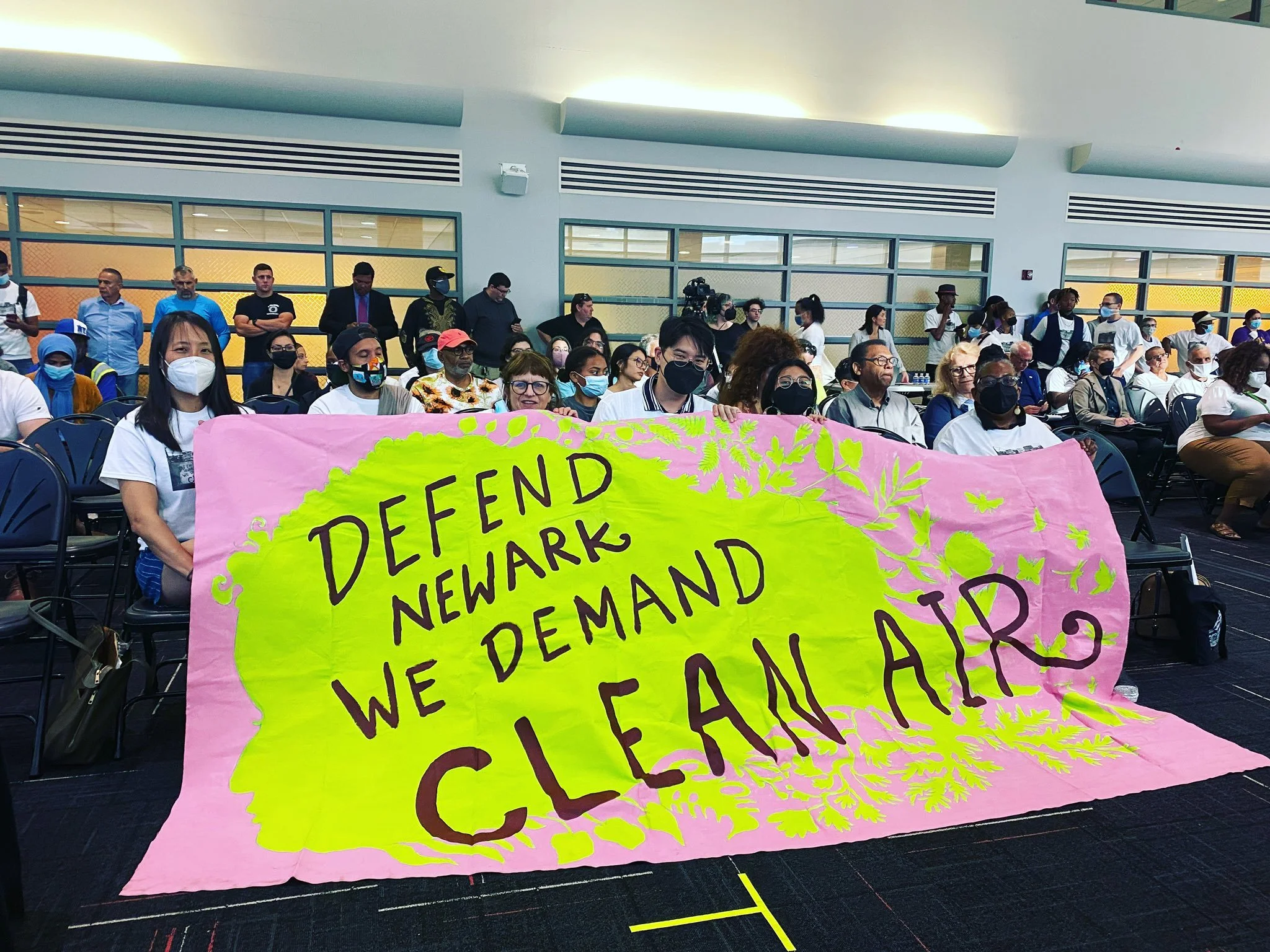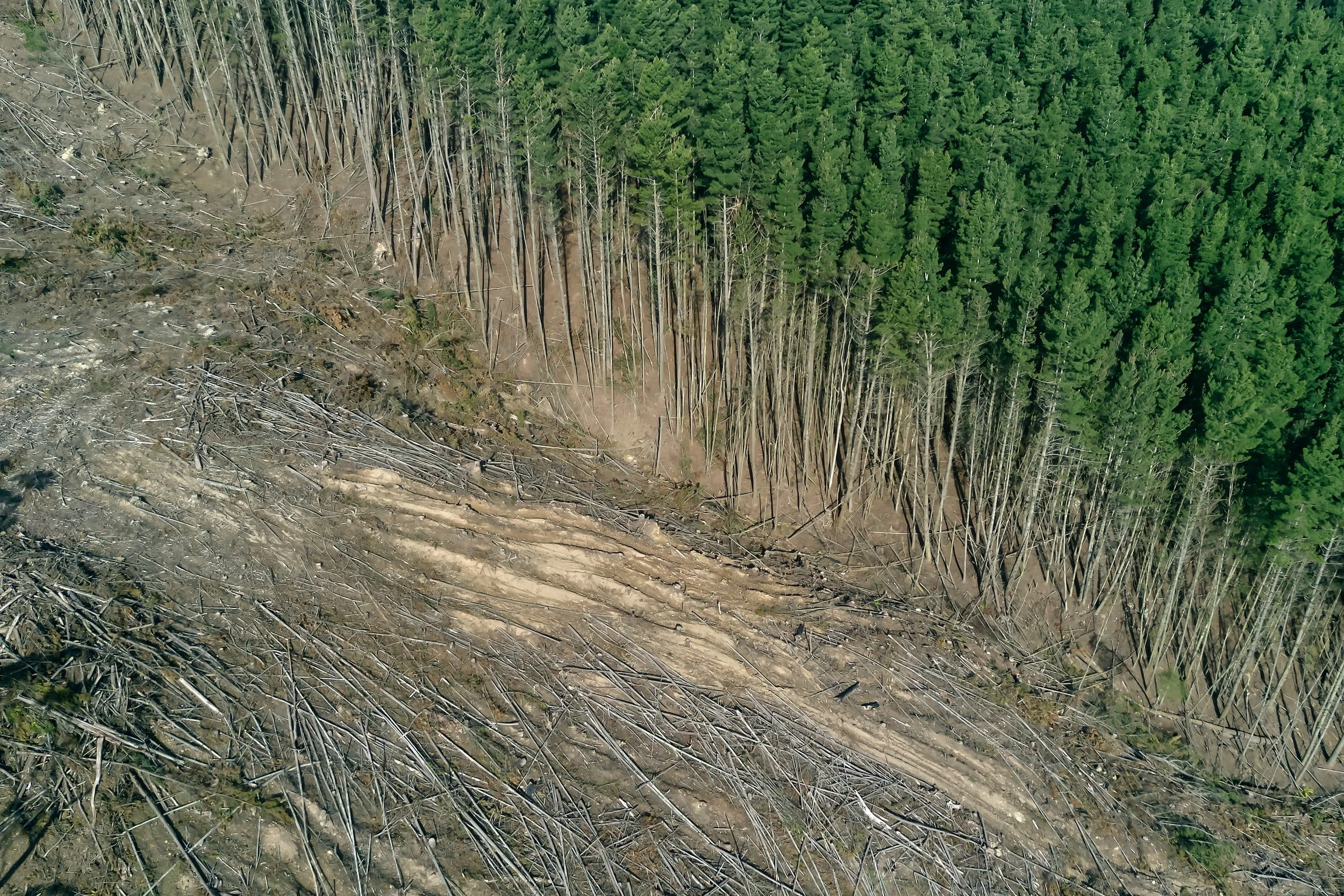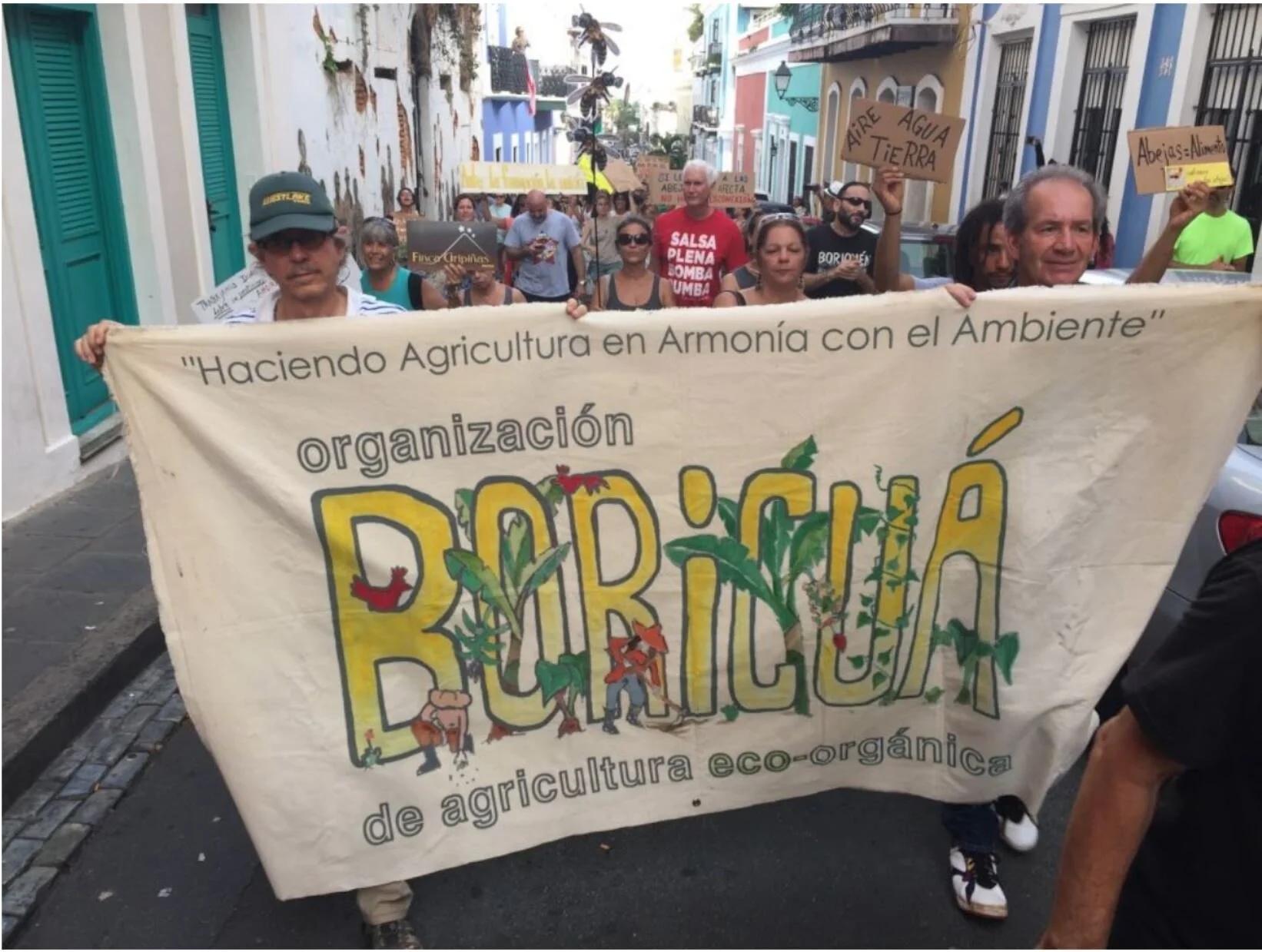This important moment following the elections calls for our steadfast commitment and solidarity with our communities of practice and partners.
Read MoreIn light of recent disheartening news, the Supreme Court's decision to overturn the Chevron Doctrine—severely restricting the EPA and other federal agencies from protecting our environment and public health—it's essential to find and share stories of hope and resilience. One such story comes from Darryl Molina Sarmiento, the 2024-2026 EJ Disrupt Design Fellow and Executive Director of Communities for a Better Environment (CBE).
Read More‘Rhythms of the Land,’ a multimedia documentary film, was screened during the 2023 Earth Month events at The New School. Present at the event was the director, Dr. Gail Myers, filmmaker and cultural anthropologist. The event was curated and moderated by Mike Harrington, Director of Sustainability Engagement, and Dr. Kristin Retnolds, Chair of Food Studies in the Schools for Public Engagement.
Read MoreWASHINGTON (August 8, 2023) – The Tishman Environment and Design Center at The New School, the Center for the Urban Environment of the John S. Watson Institute for Urban Policy and Research at Kean University, the New Jersey Environmental Justice Alliance (NJEJA), and the Center for Earth, Energy and Democracy, along with 18 environmental justice and 9 allied organizations are submitting public comments today on the Environmental Protection Agency (EPA)’s proposed carbon pollution standards for coal and new natural gas fired power plants.
Read MoreLake Superior - Our Helper is a documentary film that tells the inspiring story of the Batchewana First Nation's struggle to claim their rights over the land that has been passed down to them by their ancestors.
Read MoreAfter decades of climate inaction, the United States has reached a turning point with the passage of multiple federal laws that provide funding for clean energy. However, environmental and climate justice activists are wary, warning that these laws may further subsidize false solutions to addressing the climate crisis. Legislation like the recently passed Inflation Reduction Act is riddled with technological and market-based approaches that further exacerbate existing vulnerabilities in environmental justice communities
Read MoreWith many of the Tishman Center’s research assistants (RAs) scattered across the country for summer break, we wanted to highlight some of the environmental justice activism happening in our hometowns. On August 26 in my hometown of Houston, Air Alliance Houston, the Climate Justice Museum, and One Breath Partnership collaborated to hold “5 Years After Landfall”: a collective reflection on the catastrophic events of Hurricane Harvey in 2017.
Read MoreThe issue of cumulative impacts (CI) has been a central focus of the environmental justice (EJ) movement for decades. Understanding cumulative impacts requires consideration of the complex interplay between socio-demographic, environmental, and public health factors that impact EJ communities. These communities are both more likely to be overburdened with pollution (higher vulnerability) and more likely to suffer severe impacts from pollution (higher susceptibility) . Yet advancing actions that address cumulative impacts in EJ communities has been challenging for a variety of reasons. One of the key barriers to addressing CI in environmental decision-making is the narrow focus of existing environmental regulations that do not include an explicit mandate to consider multiple pollutants from multiple sources. There are gaps in our knowledge about how multiple pollutants interact with each other and impact public health under different conditions; and most environmental laws do not consider the socio-demographic and health disparities that impact EJ communities . Finally, one of the biggest obstacles to implementing a proactive approach to addressing CI has been the lack of political will to limit the activity of industry in EJ communities where cumulative impacts have traditionally been concentrated…
Read MoreSolidarity to everyone leading the fight for justice at the frontlines. The Inflation Reduction Act (IRA) has been paraded as the first and best climate bill in the country, although it is not representative of the needs of those who will be harmed by this very bill, and is no climate bill at all. The economic benefits of the wealthy still take precedence over the lives of the most vulnerable. It is out of touch and can be seen played out across the nation. However, local power movements in states like New Jersey are taking the lead on making sure legislation like the New Jersey Environmental Justice Law is made to protect the dignity of all people.
Read MoreGael Garcia Bernal, is a Mexican actor, director, and producer, popularly known for his performance in Amores Perros and Motorcycle Diaries amongst others. In a career spanning over two decades Bernal has also ventured into creating more conscientious films. As a part of this endeavor, during the pandemic, Bernal produced a six part documentary series centered around the climate crisis in Mexico. The series is called ‘El Tema’ which translates to ‘The Theme’.
Read MoreThe U.N. Intergovernmental Panel on Climate Change’s Working Group II Sixth Assessment Report (IPCC WGII AR6) was released on February 28, 2022: a 3,675-page tome that focuses on climate “Impacts, Adaptation and Vulnerability”. Governments around the world use this report as the authority on how climate change impacts nature and humanity.
Read MoreHookwinked in the Hothouse: Resist False Solutions to Climate Change is a 42 page zine assembled by environmental activists. It outlines several problematic practices that are being marketed as environmental solutions but only serve to expand the capitalist systems that destroy the environment in the first place. The New School hosted two panel discussions regarding the topics covered in the zine.
Read MoreDuring the Week of September 20-24th, The Tishman Center will be working on promoting events around Climate Week. Please join us for these opportunities to connect over events such as one related to how the climate crisis is affecting the African diaspora, an event on Urban Resilience, a virtual open house and more.
Read MoreThe latest IPCC report is close to 4000 pages (with appendices). As grateful as I am to the scientists that put together this thorough report, I wish I could say the report is a page turner. I still want to read it though, since climate change is a hot topic (pun intended). After struggling to read it myself, here are some tips just in case you need help reading it.
Read MoreOn March 29, 2021, Pratt and the New School collaborated on an event which is part of the Communities Beyond Crisis speaker series. In this event titled “Agroecology and Food Sovereignty Following Disaster”, speakers Ana Elisa Pérez Quintero, Magha García Medina, and Elda Guadalupe Carrasquillo discuss how they work towards food sovereignty in Puerto Rico.
Read MoreThe last few decades have seen an exponential rise in the deployment of wind energy worldwide, mostly through the development of large-scale wind farms. Onshore wind is land-intensive: because wind energy is more dispersed than fossil fuel energy, it has significant spatial requirements, and with those requirements come an increasing number of conflicts—from the Americas to Asia, Africa, and Europe (Avila 2018). Two key features of these conflicts are pressures on land and patterns of uneven development, which create problems of space and justice (Avila 2018).
Read MoreTishman Environment and Design Center is proud to announce, with our partners, The Equitable and Just National Climate Forum, and the Center for American Progress, the release of a set of recommendations to the Biden-Harris administration for how they can effectively implement their commitment to environmental justice and the successful implementation of the Justice40 Initiative. The set of recommendations was developed with environmental justice (EJ) advocates, academic experts and national environmental groups.
Read MoreThe “Curriculum of the Anthropocene” event kicked off the Tishman Center’s 2021 Earth Week programming. We invited four New School faculty members to discuss how the New School’s curriculum could be altered to better prepare students to deal with the Anthropocene - a geological time period wherein human activity has undeniably affected Earth’s climate and environment.
Read MoreThe 2021 Earth Week Keynote was presented by Drs. Ayana Elizabeth Johnson, a marine biologist, policy expert, and writer and Dr. Mia White, one of our faculty at The New School and a Tishman Center Affiliated faculty member. Her work has been featured The New York Times, Washington Post, and Scientific American. Most recently she has co-edited an anthology with Dr. Katherine K. Wilkinson, “All We Can Save”. We tuned with Dr. Johnson to see how the project came about.
Read MoreThe Tishman Center’s 2021 Earth Week is here! This year the theme is Transitions to Climate and Social Justice. Here’s a preview of the events.
Read More






